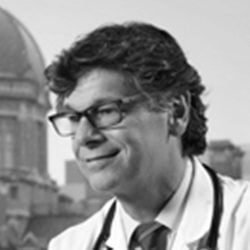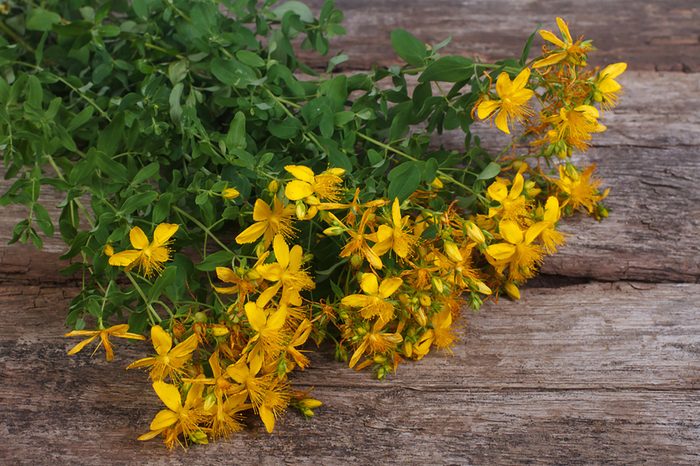Proceed with caution
Any herbal supplement or remedy could potentially cause liver or kidney failure or have dangerous interactions with other medications you may be taking. That’s why California-based physician Ehsan Ali, MD (a.k.a. the Beverly Hills Concierge Doctor), recommends you ask your doctor before popping any herbal pill or natural cure. “All patients of all ages should check with their doctor first about what home remedy they want to try,” says Dr. Ali. “Better to be safe than sorry!” He warns all of his patients that most herbal supplements haven’t been tested by the Food and Drug Administration (FDA) and may have many potential risks and side effects.
St. John’s Wort
This herb is touted as a treatment for depression, but comprehensive studies are lacking. Dangers can arise when patients are already taking other medications. There have been incidents of St. John’s Wort interfering with birth control pills, leading to unintended pregnancies. The National Center for Complementary and Integrative Health warns that St. John’s Wort can disrupt the action of many medications, including warfarin, antidepressants, and anti-rejection drugs following organ transplants. Here are 17 everyday medication mistakes that could make you sick.
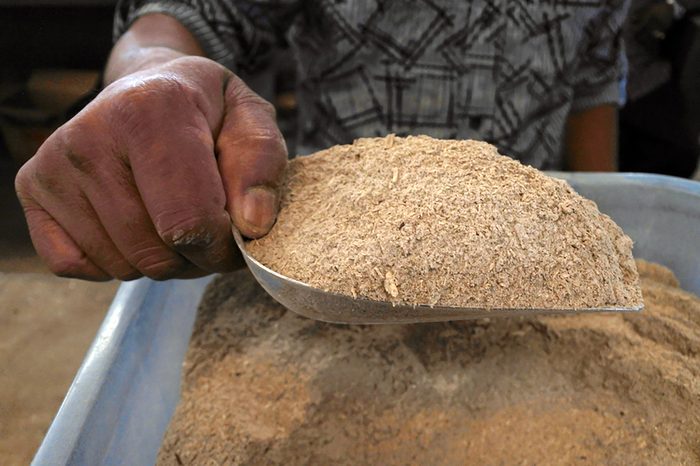
Kava
This herb, grown on South Pacific islands is often suggested for anxiety. It has been found to have a calming effect similar to Valium. Research, including a study published in 2015 in the journal Trials suggests that kava may be an effective treatment for generalized anxiety disorder. However, heavy consumption of the herb is linked with heart problems and eye irritation.
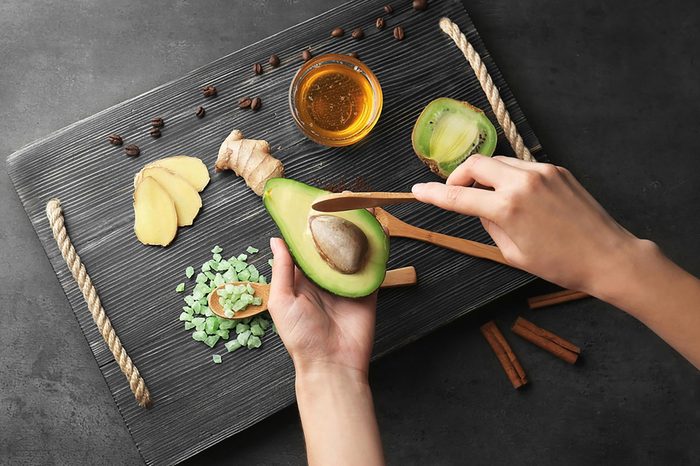
Kitchen cures for burns
Kitchen cures can seem harmless and certainly, food products can make gentle and effective beauty treatments (think: avocado or honey masks for skin and hair). But when someone has an injury or disease, natural products can do more harm than good. Svetlana Kogan, MD, a holistic physician based in Naples, Florida, has heard many potentially dangerous cures for injuries, including applying egg whites to burns. Egg whites, especially organic ones, can be full of bacteria—including salmonella—which could lead to serious infections. Instead, minor burns can be treated at home with cool water and acetaminophen for pain. Here are 53 other home remedies that actually do work.
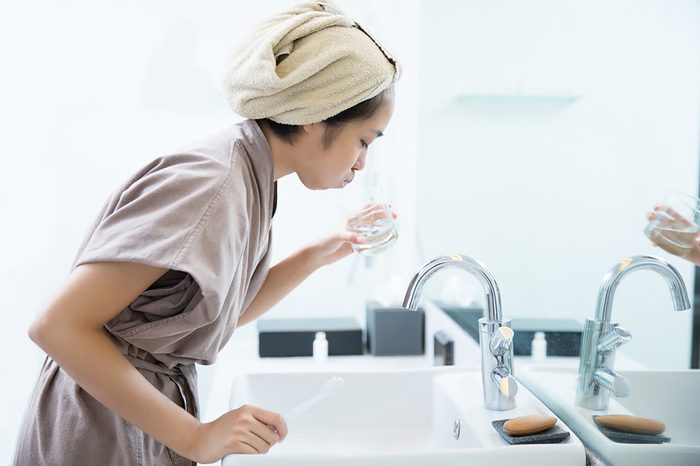
Gargling with mouthwash
The common cold continues to confound doctors and there isn’t much sufferers can do except stay hydrated. But when the symptoms progress to an inflamed throat, indulging in the common practice of gargling with mouthwash can do more harm than good. “Gargling inflamed tonsils with mouthwash is actually very irritating to the area and does not have any effect on potential strep throat,” says Dr. Kogan. Her Rx for a sore throat? Warm liquids to soothe the inflamed area and get plenty of rest.
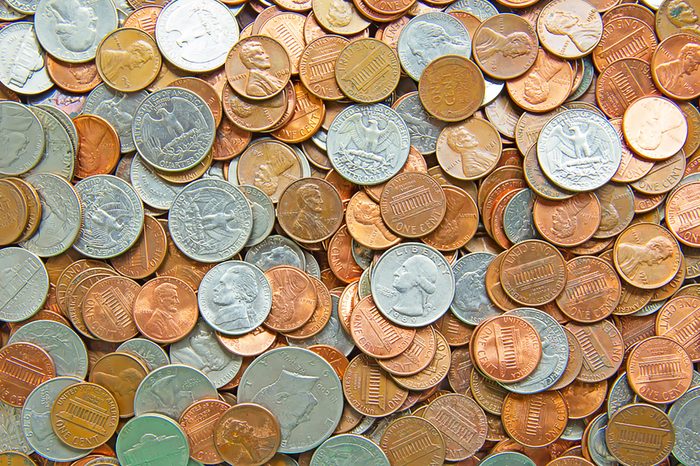
Money
The best use for money when it comes to your health is paying your medical bills. But some people use currency to try and cure ailments. For years, placing a coin or other hard, flat object on a baby’s belly to help heal an umbilical hernia has been a common practice in many cultures—a very unsafe practice: “An umbilical hernia is a gap in the layer of muscle in the abdominal wall (called the rectus abdominis muscle),” explains Danelle Fisher, MD, a pediatrician in Los Angeles. “The muscle usually grows together and the hernia goes away on its own in more than 90 percent of babies who are born with it. Having an object strapped to the baby’s belly is not advisable because it can cause a skin infection and it doesn’t change the hernia or hasten its healing.” (Not to mention that coins can be pretty dirty and are a choking hazard for your baby.) So what should you do if your baby has an umbilical hernia? Nothing, aside from watchful waiting and consulting with your child’s pediatrician.
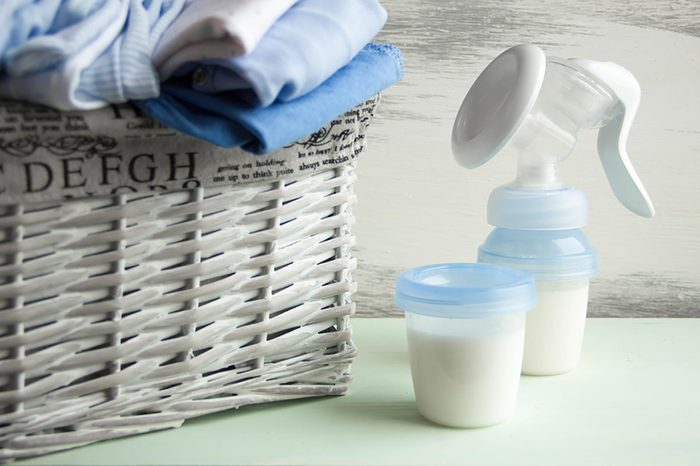
Breast milk
Mother’s milk is the best possible natural food for babies. Although many moms claim their milk clears up skin conditions, there’s no scientific proof of this, warns Sarah Yamaguchi, MD, an obstetrician and gynecologist in Los Angeles. “Breast milk can transmit infectious diseases such as HIV and pumped breast milk if not stored properly can be contaminated and can actually introduce bacteria into an already infected area,” says Dr. Yamaguchi. Instead, she advises, patients suffering from infections or inflamed skin should try to keep the area clean and dry and seek medical attention.
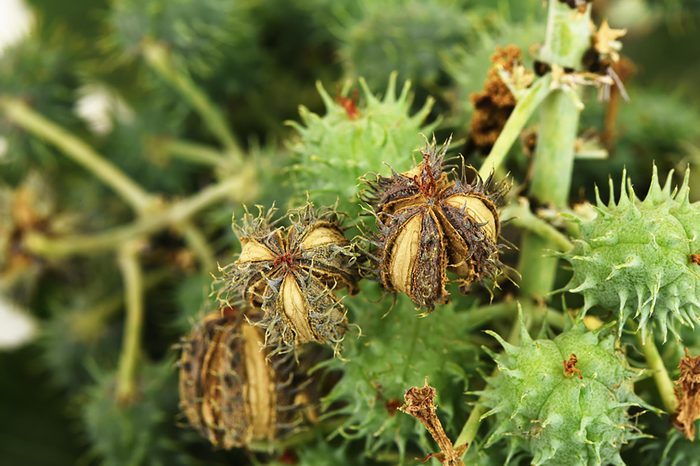
Castor oil
In her work as an obstetrician, Dr. Yamaguchi has seen her fair share of women in the final stages of pregnancy who just cannot wait to have their baby. She has seen many women take castor oil believing it will jump-start labor. “Castor oil may help if you are constipated and need to pass a bowel movement, but it’s not going to help you go into labor and it tastes awful,” she says. Here are 16 other common health products that could be dangerous.
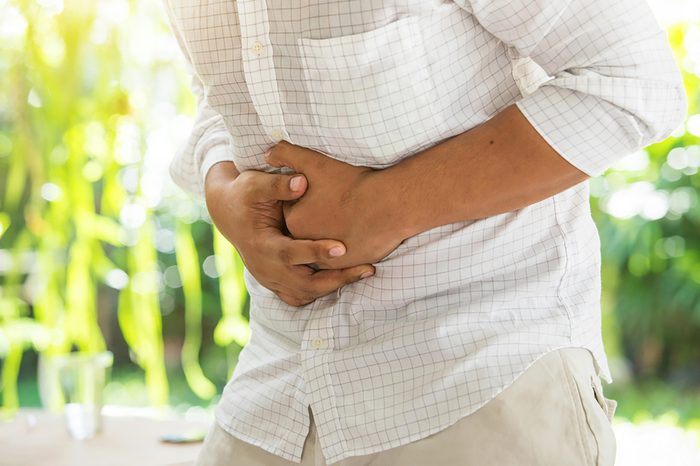
Syrup of Ipecac
This syrup, made from the roots of a South American plant, is often kept in the home by parents to act as a counter treatment for accidental poisoning, as it induces vomiting. However, this form of treatment is incredibly dangerous, warns Dr. Fisher. Many poisons do further damage when they make their way out of the body, damaging the esophagus and potentially causing breathing problems. Dr. Fisher advises parents not to use syrup of ipecac at all. The only appropriate reaction to a child swallowing something poisonous, she says, is to call Poison Control immediately and seek medical treatment.
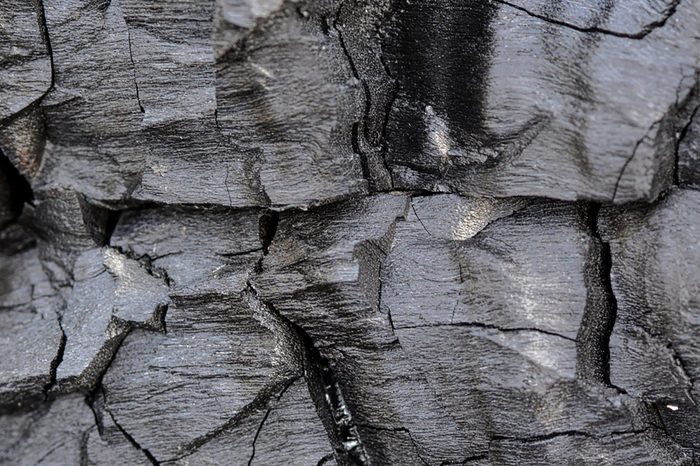
Charcoal
Some people believe that activated charcoal, often derived from coconut shells, is thought to trap and remove dangerous toxins from the body. It is often recommended for treating bloat and constipation. However, it is a controversial treatment. Dr. Kogan has heard of patients swallowing activated charcoal for detoxification purposes, which she strongly discourages. “It is dangerous because it can cause life-threatening intestinal obstructions and severe dehydration,” she says. Eating well and drinking plenty of water can have similar, but safer, detoxification effects on the body. Don’t miss these 11 bad health habits that doctors want you to stop.
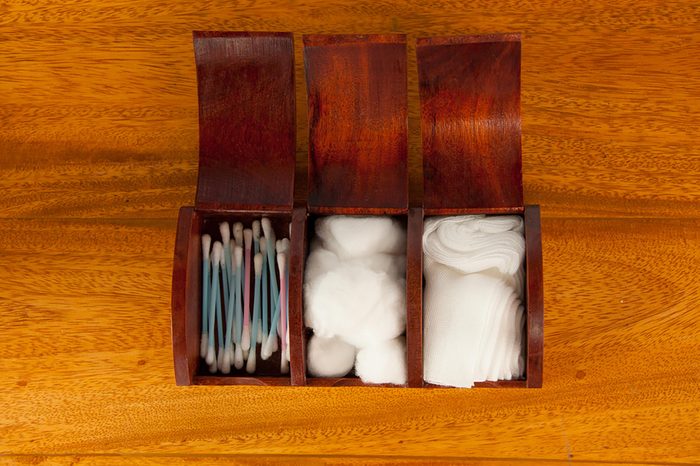
Blowing on or licking a wound
Parents everywhere are known for spitting on a tissue and using it to clean their children’s faces and sometimes even to clean a wound. Blowing on or introducing saliva to a cut is very dangerous. “Our breath and saliva have tons of bacteria which can contaminate the wound and lead to an infection,” says Dr. Kogan. Instead, use fresh water and consult a doctor if needed. Watch out for these 15 “healthy” habits that really aren’t good for you.
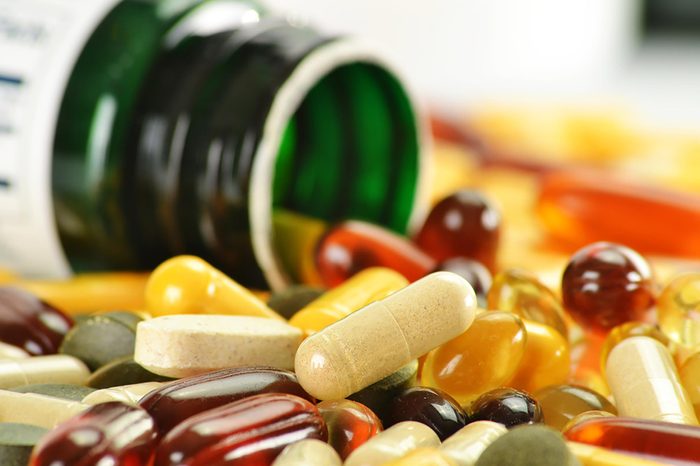
Vitamins
As long as you follow a healthy diet, you’ll get all the vitamins and minerals you need. That’s good because sliding into the habit of trying to make up supposed deficiencies with supplements can quickly lead to trouble, warn Dr. Kogan. The danger comes when people ignore the recommended doses and take too much of a particular vitamin. Too much vitamin D, for instance, can cause liver and heart problems, while an overabundance of B6 can lead to nerve toxicity; a vitamin A overdose can even cause death in extreme cases. Now that you know which remedies to steer clear of, check out these home remedies that really do work.
